10 Best Herbal Decoctions For Gallstones

Herbal decoctions have been traditionally used to support the treatment of gallstones by promoting bile flow and reducing inflammation in the gallbladder.
Common herbs such as dandelion, milk thistle, and turmeric are often included in these decoctions due to their hepatoprotective and choleretic properties. These herbal preparations may help dissolve small stones and prevent the formation of new ones by improving liver function and digestive health. However, they should not replace medical advice or treatment, especially for larger or symptomatic gallstones.
It is important to consult with a healthcare provider before using any herbal remedies to ensure safety and effectiveness.
Table of Contents
- 1. Thistle (Silybum marianum)
- 2. Turmeric (Curcuma longa)
- 3. Stinging nettle (Urtica dioica)
- 4. Common grape (Vitis vinifera)
- 5. Black cumin (Nigella sativa)
- 6. Dog rose (Rosa canina)
- 7. Indian barberry (Berberis aristata)
- 8. Blessed thistle (Cnicus benedictus)
- 9. Dandelion (Taraxacum officinale)
- 10. White water lily (Nymphaea alba)
1. Thistle (Silybum marianum)

Silybum marianum, also known as milk thistle, is a herbal remedy commonly used in the preparation of decoctions for the management of gallstones.
The active compound, silymarin, is believed to support liver function and may help in the dissolution of gallstones by promoting bile production and reducing inflammation. Herbal decoctions made from silybum marianum are often prepared by simmering the dried seeds in water for several hours to extract the beneficial compounds. While some studies suggest potential benefits, the effectiveness of silybum marianum in dissolving gallstones remains inconclusive and should be used under medical supervision.
It is often combined with other herbs in traditional remedies, but it is not a substitute for conventional medical treatments for gallstone disease.
2. Turmeric (Curcuma longa)

Curcuma longa, commonly known as turmeric, has been traditionally used in herbal medicine for its anti-inflammatory and hepatoprotective properties.
Herbal decoctions made from Curcuma longa are often prepared by boiling the rhizomes in water to extract active compounds such as curcumin, which may support liver function and bile production. Some studies suggest that curcumin may help dissolve gallstones and reduce inflammation in the gallbladder, although more research is needed to confirm its efficacy. These decoctions are typically consumed as part of a holistic approach to managing gallstone-related symptoms.
However, individuals with gallstones should consult a healthcare professional before using curcuma longa as a treatment, as it may interact with certain medications or conditions.
3. Stinging nettle (Urtica dioica)

Urtica dioica, commonly known as stinging nettle, has been traditionally used in herbal medicine for its potential benefits in supporting liver and gallbladder health.
Herbal decoctions made from Urtica dioica are believed to help stimulate bile production and improve the flow of bile, which may assist in the prevention and management of gallstones. These decoctions are typically prepared by simmering the dried leaves and stems in water for an extended period to extract their active compounds. While some studies suggest that stinging nettle may have mild cholagogue effects, it is important to consult a healthcare professional before using it as a treatment for gallstones, as it may not be suitable for everyone.
Overall, Urtica dioica herbal decoctions are often considered a complementary therapy rather than a primary treatment for gallstone conditions.
4. Common grape (Vitis vinifera)
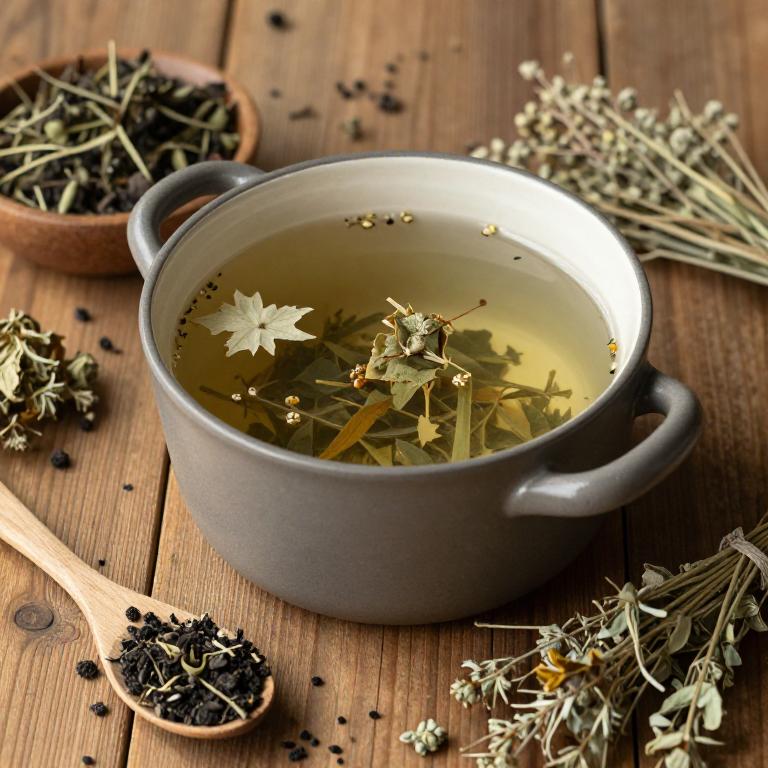
Vitis vinifera, commonly known as the grapevine, has been traditionally used in herbal medicine for its potential benefits in treating gallstones.
The herbal decoctions made from its leaves and berries are believed to support liver and gallbladder function by promoting bile production and flow. These decoctions may help in dissolving cholesterol-based gallstones and reducing inflammation in the biliary tract. However, while some studies suggest possible therapeutic effects, more clinical research is needed to confirm their efficacy and safety.
As with any herbal remedy, it is important to consult a healthcare professional before using Vitis vinifera decoctions for gallstone management.
5. Black cumin (Nigella sativa)
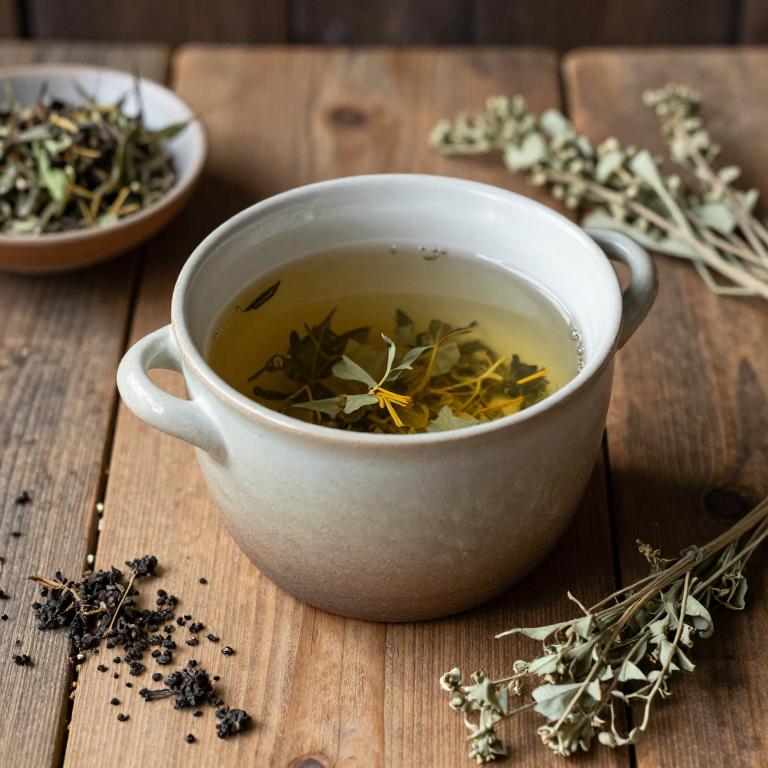
Nigella sativa, commonly known as black cumin, has been traditionally used in herbal medicine for its potential health benefits, including the management of gallstones.
Herbal decoctions made from the seeds of Nigella sativa are believed to support liver and gallbladder function by promoting bile production and flow. Some studies suggest that the active compound thymoquinone in Nigella sativa may help reduce the formation of gallstones and alleviate related symptoms. However, while anecdotal evidence supports its use, more rigorous clinical trials are needed to confirm its efficacy and safety for gallstone treatment.
It is important to consult a healthcare professional before using Nigella sativa as a complementary therapy for gallstones.
6. Dog rose (Rosa canina)

Rosa canina, commonly known as dog rose, has been traditionally used in herbal medicine for its potential benefits in supporting liver and gallbladder health.
Herbal decoctions made from Rosa canina berries are believed to aid in the dissolution of gallstones due to their high content of bioactive compounds such as flavonoids and vitamin C. These compounds may help reduce inflammation and improve bile flow, which can support the body's natural processes for managing gallstones. However, it is important to note that while some anecdotal evidence supports the use of Rosa canina for gallstones, scientific research on its effectiveness remains limited.
As with any herbal remedy, it is advisable to consult a healthcare professional before using Rosa canina decoctions, especially for individuals with existing gallbladder conditions.
7. Indian barberry (Berberis aristata)
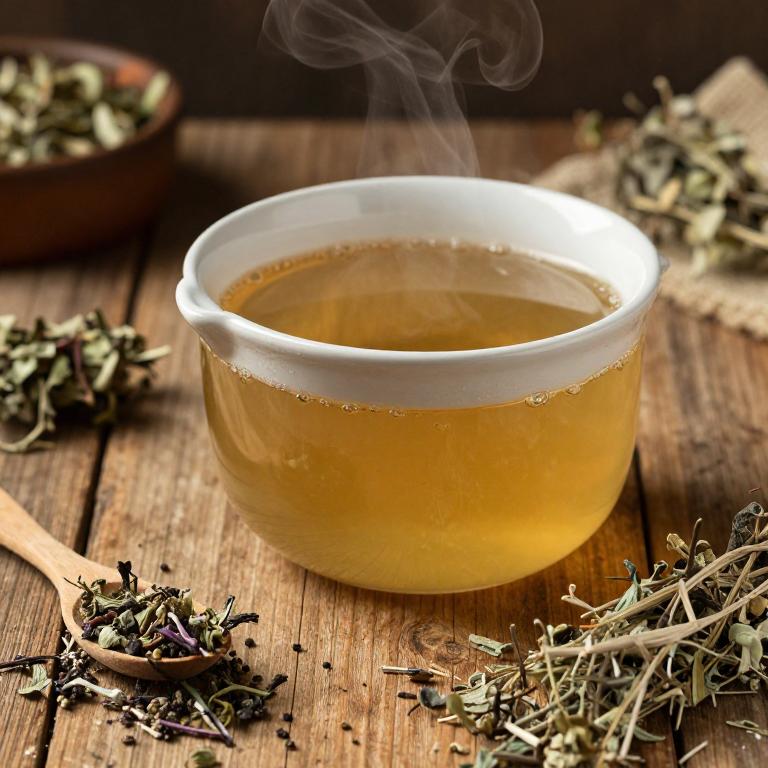
Berberis aristata, commonly known as Indian barberry, contains berberine, a bioactive alkaloid that has been studied for its potential effects on gallstone management.
Herbal decoctions made from the roots and stems of Berberis aristata are traditionally used in Ayurvedic medicine to support liver and gallbladder health. Some research suggests that berberine may help reduce cholesterol levels and improve bile flow, which could potentially aid in the prevention or dissolution of gallstones. However, while preliminary studies are promising, more clinical trials are needed to confirm its efficacy and safety for treating gallstones.
As with any herbal remedy, it is important to consult a healthcare professional before using Berberis aristata decoctions, especially for individuals with existing gallbladder conditions.
8. Blessed thistle (Cnicus benedictus)

Cnicus benedictus, also known as blessed thistle, has been traditionally used in herbal medicine for its potential benefits in supporting liver and gallbladder health.
Herbal decoctions made from Cnicus benedictus are believed to help stimulate bile production and improve the flow of bile, which may assist in the management of gallstones. The plant contains compounds such as sesquiterpene lactones and flavonoids, which are thought to have anti-inflammatory and cholagogic properties. While some studies suggest it may aid in dissolving small gallstones, more research is needed to confirm its efficacy and safety.
As with any herbal remedy, it is important to consult a healthcare professional before using Cnicus benedictus for gallstone treatment.
9. Dandelion (Taraxacum officinale)
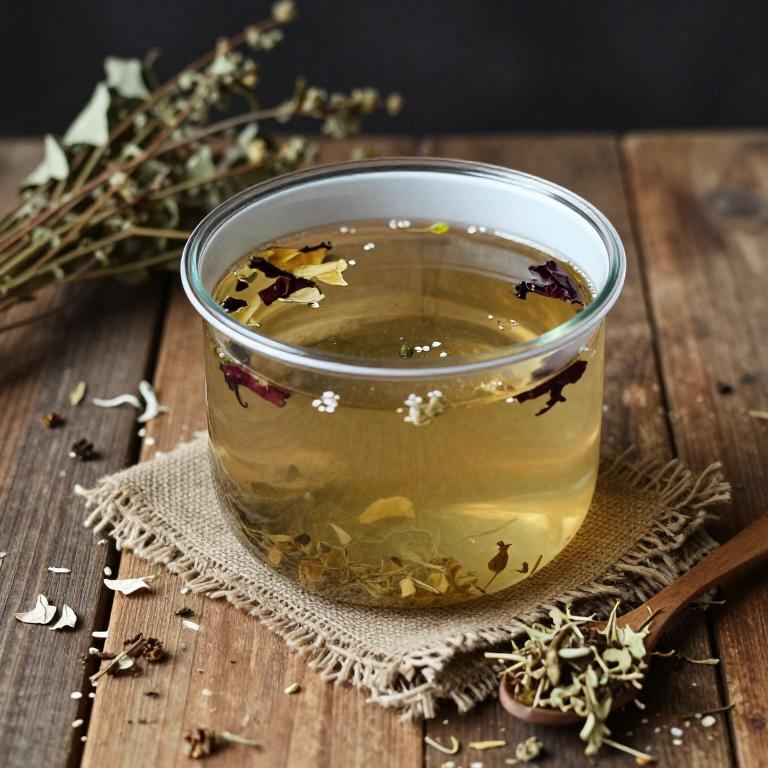
Taraxacum officinale, commonly known as dandelion, has been traditionally used in herbal medicine for its potential benefits in supporting liver and gallbladder health.
Herbal decoctions made from the roots and leaves of dandelion are believed to stimulate bile production and promote the flow of bile, which may aid in the prevention and management of gallstones. These decoctions are often prepared by boiling the dried plant material in water and consuming the resulting infusion, typically several times a day. While some studies suggest that dandelion may help reduce the formation of gallstones by improving bile composition, more research is needed to confirm its efficacy and safety.
As with any herbal remedy, it is advisable to consult a healthcare professional before using dandelion decoctions, especially for individuals with existing gallbladder conditions.
10. White water lily (Nymphaea alba)
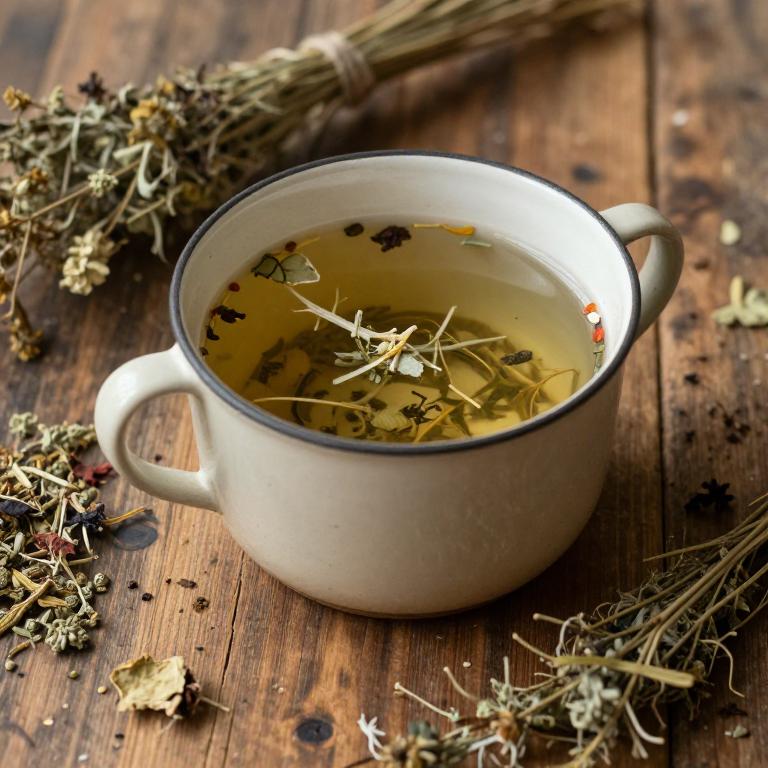
Nymphaea alba, commonly known as the white water lily, has been traditionally used in herbal medicine for its potential therapeutic properties.
Herbal decoctions made from Nymphaea alba may support liver and gallbladder health, potentially aiding in the management of gallstones due to its mild cholagogue effects. The plant contains bioactive compounds such as alkaloids and flavonoids, which may help in reducing inflammation and promoting bile flow. While some studies suggest that Nymphaea alba may assist in dissolving small gallstones, more clinical research is needed to confirm its efficacy and safety.
It is important to consult a healthcare professional before using Nymphaea alba or any herbal remedy for gallstone treatment.